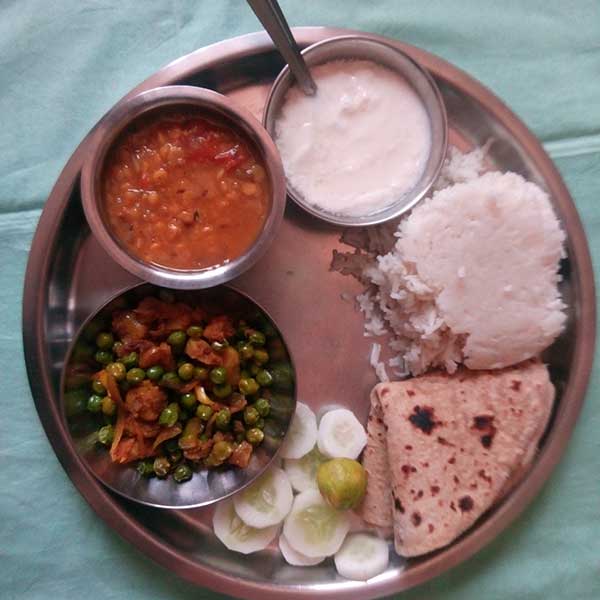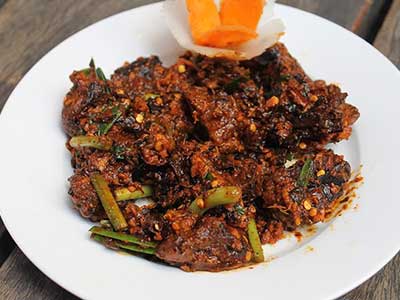Diets

Weight Management
Weight Loss: As more and more people around the world are becoming conscious with their weight, the search for the correct weight loss programs has intensified. We at Nutrifit offer dynamic diet plans according to individual weight loss targets, therapeutic requirements, eating habits and their social and corporate lifestyles.
Weight gain or Muscle gain: While obesity is becoming a major problem these days, being underweight can also lead to major health problems. However, there are still many misunderstandings about the ways to gain weight safely. Some weight gain methods result in severe short and long term effects on health.
Putting on healthy weight is necessary for an underweight individual and may also be a goal for someone who is willing to build muscle.
In general, consuming more calories than the body burns may result in weight gain. However, the calorie intake necessary to achieve the target weight gain may vary from person to person.

Post Pregnancy
Post pregnancy weight gain is normal. You should plan to return to your pre-pregnancy weight by 6-12 months after delivery. The rest most often comes off iver the next several months.
Holding on to the pregnancy weight can lead to serious health consequences down the road, putting moms at risk for chronic conditions like heart diseases and diabetes. And losing the pregnancy weight is important not just for new moms, but for babies too.
A healthy diet with daily exercise will help you shed the kilograms (pounds). Breastfeeding can also help with postpartum weight.

Therapeutic Diet
A therapeutic diet or healing diet protocol is a meal plan that controls the intake of certain foods or nutrients or compounds in food. It is often followed as a part of the treatment of a medical condition and is most times done temporarily to heal and to prevent health conditions.
Therapeutic diets are formulated to optimize the nutritional needs of the clients in order to treat a variety of diseases and disorders or to improve the eating capabilities of a patient or client.

PCOS Diet
Polycystic ovary syndrome (PCOS/PCOD) is a common hormone condition that describes a number of symptoms. These symptoms include irregular periods, excessive hair growth on the face and body, oily skin and acne, thinning hair and hair loss, weight gain and difficulty in conceiving.
This hormone condition is thought to affect 7-10% of young women and while the cause is not definitely known, the condition is related to abnormal hormone levels and is thought to be hereditary. Excess weight as a contributing factor in PCOS as women who were above the ” “healthy” BMI (Body Mass Index) category have an increased risk of hormonal abnormalities and a lower rate of ovulation.
A healthy diet is crucial to aid insulin regulation as women with PCOS are often resistant to the effect of insulin and therefore have more in their blood.

Sports Nutrition
Sport nutrition is a specialization within the field of nutrition that partners closely with the study of the human body and exercise science. Sport nutrition can be defined as “the application of nutrition knowledge to a practical daily eating plan focused on providing the fuel for physical activity, facilitating the repair and rebuilding process following hard physical work and optimizing athletic performance in the competitive events, while also promoting overall health and well-being.”
Why?
Sports nutrition has recently emerged as a recognized specialty area within the field of nutrition. Athletes challenge their bodies on a regular basis through physical training and competitions. To keep up with the physical demands of their activity or sport, athletes need to fuel their bodies adequately on a daily basis.
This fueling process requires a specialized approach; therefore, athlete who want to make dietary changes should seek out professionals who are experts in sport nutrition and experience in developing individualized plans.

Keto Diet
A ketogenic diet can be good for losing weight for most people, and is very good for treating seizures. The diet forces the body to burn fats rather than carbohydrates.
The regular ketogenic diet has two to four times more fat by weight than protein, and very little carbohydrates every day. This means not eating foods that are made from starch or sugar. High-carbohydrate foods are foods like fruits, bread, pasta, grains, cookies, and ice cream. Also, you have to increase your intake of fatty foods, like oils, butter, and fatty meats. It’s also important to not eat too much protein. You should only eat just enough protein so you don’t lose muscles. Too much protein reduces the ketone bodies in your blood and blocks fat burning.
We at Nutrifit offer keto diet plans according to nepali food and food that is available here.
